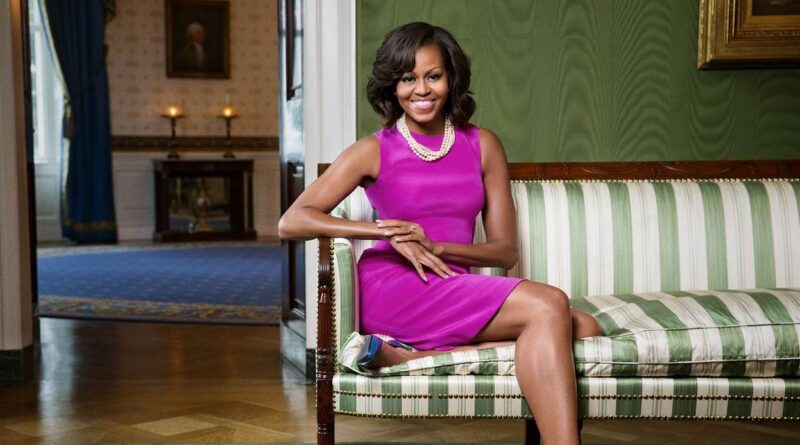Women of Color in Popular Culture
Despite the great strides made in the improvement of the status of women in the society over the past century, the expectations, and to a great extend the beliefs, of a majority of the population is based on the view that the position of a woman in the society is inferior to that of men. The achievements of women are therefore not benchmarked against the same standards that are applied to men, and expectations on the achievement capabilities of women are generally low. This trend is present in all parts of the world, though there are great differences in the position of women in the society ranging from almost full emancipation of women in North America and Western Europe to outright oppression of women in parts of Africa and Asia.
In popular culture, the position of women of color is also informed on the societal perceptions that exist in such societies. Despite the fact that most of the achievements of women of color in popular culture are beyond the norm, the perceptions held of them by the society are informed first by the underlying perceptions of the position of a woman in the society rather than on their achievements.
Michelle Obama, the current first lady, is a perfect example of the representation of a woman of color in popular culture. By virtue of her position, she enjoys what is arguably the highest positioned celebrity status in America. The fame and recognition of her name stems from the fact that she is the first lady to an equally famous and historic first black president. In most cases, her representation in popular culture suggests that her position is brought about simply because of the achievements of her husband, and that it is not because of her own working towards that position.
This perception that Michelle Obama’s celebrity status is merely as a result of her husband’s position is based on the perception that has grown over the years in the representation of women in popular culture; that a women achievements are more often than not tied to a man, with the underlying implication that to achieve such a position, she needs, even if it’s by the most minimum degree, the assistance from a male. This representation has been rife, with perfect examples ranging from women warrior depictions in movies such as Angelina Jolie in Tomb Raider, in music where Beyonce Knowles has the assistance of her father as her manager and her Husband who is a fellow pop icon. This perception is wrong because it does not consider the personal effort input by such a woman towards the achievement of her goals. More often than not, Michelle Obama’s contribution to the election of her husband is overlooked, and many simply prefer to take the simplistic view that she is a celebrity merely because she happens to be married to the president. This is not the case because a keen audit on the process of the election of Obama as the president enjoyed considerable contribution from her wife who participated in the campaigns in a very effective manner. Her contribution to the election campaign cannot be overemphasized, and it will be remembered that through her oratorical prowess which equals, if not surpasses her husband’s, she was able to contribute positively towards her husband’s election. Though debatable, it can be argued that perhaps without her contribution, her husband’s election to the first term in office would have been more difficult.
Michelle Obama’s contribution to the ongoing campaigns also goes further to show that the representation of women of color in popular culture as being dependent on men is wrong. It can be argued that her contribution to the presidential campaign has been vital, and she carries with her enough sway to influence either a victory or a defeat for the current white house administration. Her speeches give the impression of a person well knowledgeable in the workings of the executive arm of the government and do not in way portray her as clueless woman who owes her position to a man. As a matter of fact, it can be argued that the Obama administration’s bid for re-election hinges more on the contribution of the first lady than ever before. The perception that is many women in popular culture are dependent on the assistance of men is thus wrong, and Michelle’s case offers a fine example why this notion should be rejected on its entirety.
Popular culture depicts women mostly as having inferior intelligence capacity compared to men as shown in most films and television where women are depicted as dim witted shoppers, poor decision makers and generally as people dependent on the thinking of men to make decisions. As a celebrity, Michelle Obama has shown that this is a misguided notion that should be rejected. Her personal achievements in both her academic and career life show that women of color are not as poorly endowed in intelligence as popular culture would lead many to believe. Mrs. Obama is a graduate of the Harvard Law school, which is no mean feat by itself. Her ability to progress through the academic process to such a prestigious and well reputed graduate law school clearly indicates that the stereotype that is furthered by the depictions of women in popular culture as of weaker intelligence should be permanently discarded. Many women of color depictions in popular culture show them as incapable of logical thought unless assisted by men. Though there have been cases where events seem to suggest otherwise; the battery incident of the popular music singer Rihanna, and her continued stay in an abusive relationship, such should be taken as isolated incidents which should have no bearing whatsoever on the depictions of women of color by popular culture.
A very undoing and serious stereotypical depiction of women of color in popular culture gives the perception that women of color can only excel in music. This is a very harmful notion that ails most of the societies where there are women of color. Though there are numerous exceptions which clearly show that women of color can excel in almost all the careers, there is a continued stereotype that if a woman of color is to be successful, she should venture into the music industry. The effect of this stereotyping on the lives of young women of color is not fully comprehensible, and many of them venture into the music industry only to suffer setbacks and disappointments of an elusive successful music career. Michelle Obama, as a celebrity, has shown that it is possible for women of color, even without the patronage of the male, to be successful in any career of choice. Even before she got engaged to the future president, she was successful by ordinary standards. She was a Harvard schooled lawyer working for the civil rights of minority communities in Chicago. She had worked her way up the academic levels and the perceived barriers that women of color face to qualify as a lawyer. This success story clearly indicates that most of the barriers to women of color success may merely be perceptions which may not actually exist and are created by perceptions of the portrayal of women in popular culture. In essence, women of color should venture into other careers other than focusing on music, and through diligent hard work, success can be obtained in any filed, be it the arts or sciences.
Though not directly elected into an elective post, Michelle Obama bears a serious political clout which has not been achieved by many women of any race. In most of the portrayals of first ladies as homely ladies whose functions do not go far from hosting parties in the White House. This stereotyping of First ladies in the popular media has been given a serious dent by the occupancy of Mrs. Obama in that position. She has immersed herself in politics in ways few first ladies have done in the past. Her involvement in the causes of the administration and her defence of the policies being implemented by the administration give a picture of a first lady who is fully in the picture of what is happening in the government. Her involvement in the campaign goes further to show how deeply immersed she is in the political world. She therefore trashes the perspective that ladies in politics is a no go zone to women of color by the considerable success she has achieved in the political arena.
In popular culture, especially television and film, women are represented as homemakers, mothers and housekeepers whose duties and emotions are geared towards the bringing up of children into fine citizens. This representation is wrong since it implies it is the duty of the woman alone, while in real life, both men and women should contribute positively towards the upbringing of their offspring. This is a reality which the popular media, by taking advantage of popular culture, tries to hide and further the stereotype. Michelle Obama, in her portrayal in the popular media has shown that this is a wrong notion that should be rejected by all since it degrades women and keeps them held up in family duties and do not get time to pursue other interests. Through her, this has shown to be wrong as the man in her family is equally involved in the business of upbringing the children in the family.
Conclusion
The portrayal of women of color in popular culture has not been positive, and has created stereotypes which may take a very long time to eradicate completely and have them rejected by the society in general. However, Michelle Obama, as a figure in popular culture, has been able to transform many of these perceptions and show that they only go to cause harm to the aspirations and dreams of women of color, and that as long they persist, it will be very difficult to achieve complete social and political freedom for the women of color. She should be a strong reference point to those seeking to fight the ills that befall the society as a result of depictions of women of color in popular culture.
References
Guerrilla Girls. 1998. Guerrilla Girls’ Bedside Companion to the History of Western Art. New York: Penguin.
Gans. Herbert. 1974. Popular Culture and High Culture. New York: Basic Books.




